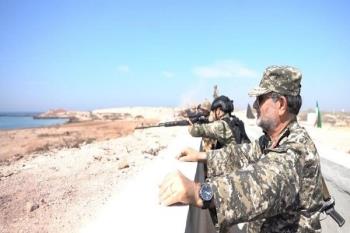Alwaght- the US President Donald Trump's moving the US embassy from Tel Aviv to al-Quds (Jerusalem), his presidential campaign promise, gas bring the Palestinian cause as the top issue in the whole region and the Muslim world.
Many countries around the world voiced their opposition or concerns over Washington's provocative move. Regarding the Muslim countries, despite their unified stance against the US measure, some states have a history of the inconsistency of views and actions, short-living protests, and use of inefficient instruments to deal with Palestinian case which makes them practically unable to protect the Palestinian rights and deter the Israeli regime's crimes.
However, due to fact that Israeli regime is implementing a long-designed roadmap to fully occupy the Palestinian lands including al-Quds, where hosts one of the holiest sites in Islam, Muslim governments have decided to support the Palestinians. According to the Turkish officials whose country currently presides over the Organization for Islamic Cooperation (OIC), the member-states in their recent emergency conference on May 18 have considered a set of mechanisms to take practical steps against the US embassy relocation and Israeli regime's violation of Palestinians' rights.
But what potentials do Muslim states have to realize their pro-Palestinian agenda. Here is only a short list of them:
- Accounting for about 25 percent of the global population
- Having 12 percent share of the global trade
- Presence in the international organizations with 57 states
- being located in strategic regions such as West Asia
- Enjoying the very rich energy and mineral resources, and also huge military development capacities
If united, Muslims not only would be able to eliminate the hardest challenges and risks in political, economic, and military terms but also they could pursue their national interests together more powerfully. However, Muslim states are not as united as they could be and some of them are even at loggerheads with each other.
One of hurdles ahead of Muslim states to force Israeli regime to end its crimes against Palestinians is the unwavering US support in diplomatic and military terms for Tel Aviv. Since Trump assumed the power at the White House in early 2017, the US as a superpower very openly unveiled its pro-Israeli biased policy in mediating the so-called peace process between the Palestinians and Israelis. This element works as a firm deterrence to the functionality of any punitive measures taken by the Muslim states to counter the embassy moving. The US has a right of veto, which means the Muslim-proposed anti-Israeli, pro-Palestinian resolutions at the United Nations Security Council are totally ineffective. The great economic strength is another factor coming to the US help to make up for any possible damages coming from any boycott imposed on the countries siding with the US in its controversial diplomatic mission relocation.
On the other side, there is another significant hurdle making any confrontational measures impossible to function properly and it is the existence of dictatorships profoundly reliant on the West and particularly Washington whose dictates are precisely followed by them in favor of the Israeli regime. Saudi Arabia, the United Arab Emirates, Bahrain, and even Egypt are the main states with huge reliance on the US.
Despite these roadblocks, once the Muslim states decide to push forward with penal steps against those providing backing to the US illegitimate transfer of embassy, Trump’s project will suffer a hard blow.
Clearly, Donald Trump won the presidential race with a set of promises, first of them was boosting the economic and living conditions of the American citizens under the “America first” slogan, followed by a pledge to scale down the US expenditures as well as aids to the international organizations and foreign countries. Therefore, Muslim states could sanction Guatemala and Paraguay that followed the US suit to relocate their embassy to al-Quds as a deterrent measure against few countries that mull doing the same.
Moreover, the US is enjoying the veto power at the UNSC. But frequent vetoing of massively-supported resolutions comes with political prices to Washington. Additionally, Muslims can raise the case to the International Court of Justices based in Hague. A potential verdict against the US move that recognizes the embassy transfer illegal, could prevent small countries from taking steps akin to Washington’s.
All in all, if the Muslim world fails to firmly respond to such small countries as Paraguay and Guatemala for their embassy moving, very definitely more small states will prospectively bribed or forced into recognizing al-Quds as the capital of the Israeli regime.



























